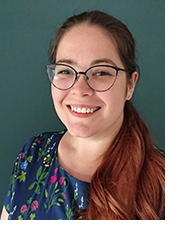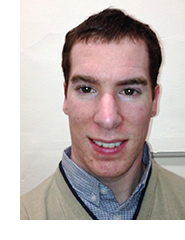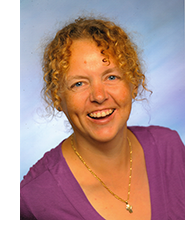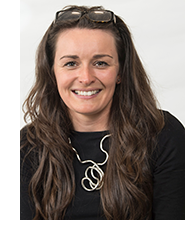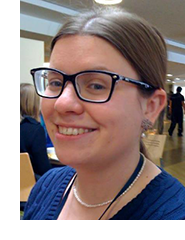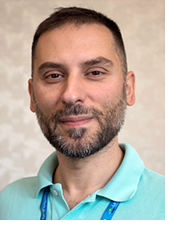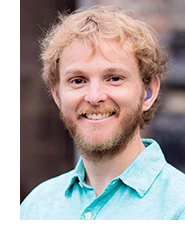
Charlie Davis joined the School of Education at the University of Nottingham in January 2020 as an Assistant Professor in Higher Education. He began his HE career in 2009 at the University of Derby, moving to Nottingham Trent in 2015. Charlie completed his EdD at the University of Nottingham in 2018. He also holds an MA ICT in Education from the University of Nottingham, which he gained in 2010. Prior to his career in HE, Charlie spent eight years teaching English to speakers of other languages in England, the Republic of Ireland and Barcelona.
Charlie’s research primarily focuses on utilising participatory research approaches to foster opportunities to challenge forms of social injustice. Through his work, Charlie uses critical storytelling methods to provide participants with creative opportunities to represent their lived experiences on their terms.
In this SRHE project, Charlie will work with a group of Russell Group academics who identify as being of Working-Class heritage to develop stories about their routes into academia. Mobilising critical storytelling methods, the participants will generate knowledge to develop podcasts communicating the all too often muted complexities of the lived experiences of working-class academics. The podcasts will be aimed at working-class students in, or considering, postgraduate studies to communicate to them that people with similar identity characteristics to them exist in higher education. This work contributes to innovative activist-orientated methodologies challenging forms of epistemic injustice which deny working-class people access to empoweringly transformative HE experiences. At a policy level, this study seeks to contribute to discussions about how to meet challenges which impede access to HE for academics and students identifying as working-class.
Considering the Impact of Further and Higher Education Tutor Imaginings of BTEC Learners upon Student Learner Identities – Freya Ernsting, Manchester Metropolitan University
Freya Ernsting is a Research Associate within the Faculty of Business and Law at Manchester Metropolitan University exploring the inequalities faced by students, particularly regarding transition and inclusion within Higher Education; ultimately investigating how they contribute towards a gap in degree progression and award. In addition, Freya is a tutor in academic skills and philosophical approaches to research. Freya is also a current doctoral student at the University of Strathclyde, examining cyborgian identities and the use of smartphones amongst young adults, investigating how the formulation of identity might have been impacted by smartphone use. Freya holds a BA(Hons) in Film and Media Studies, and an MA in Japanese Studies.
In this SRHE funded study, Freya will examine how BTEC learners are imagined within both further and higher education environments, and how those imaginings impact student learner identities. Whilst it is widely acknowledged that BTEC learners often experience less success within HE; data on progression and award gaps tends towards the quantitative, limiting the narrative and reasoning behind this picture. Therefore this research aims to illuminate the ways in which BTEC students are differently imagined and supported within FE and HE, considering how these perceptions shape students’ own emerging sense of self and belonging as learners within HE. By connecting further and higher education, this research raises awareness of the needs of BTEC learners to promote accessibility and inclusion of different learning needs, and ultimately, supports student success. This will be achieved through a multi-method study, consisting of narrative interviews and diary based methods to consider the ways learner identities are embedded in a collective past, produced in practice through life experiences, and mediated by discourse.
Disabled people’s experiences of higher education during the time of the Coronavirus pandemic: Pasts, presents, and future – Stuart Read, Bath Spa University
Stuart Read holds an MSc in Psychological Research Methods and a PhD in Psychology from the University of Exeter. Following the completion of his PhD, Stuart was a Senior Research Associate at the Norah Fry Centre for Disability Studies, University of Bristol. Since 2018, Stuart has been employed as a Research Fellow in the School of Education at Bath Spa University.
Stuart’s research interests intersect Disability Studies, Education, and creative and inclusive research methods. As a disabled person and activist researcher, Stuart is interested in researching the lived experiences of disabled people for the purposes of promoting social change. He is currently concerned with researching topics around disabled people’s experiences of higher education, including: academic ableism; the inequalities that disabled people face when studying and working within academia; and how to embed principles of inclusion and compassion within the higher education sector.
For his SRHE research, Stuart will combine his interests by exploring the lived experiences of disabled students and staff as they navigate a pandemic academy. He will seek to understand disabled people’s experiences of studying and working in COVID times from the onset of the pandemic to the present. He will also explore disabled people’s hopes and fears about returning to a post-pandemic university environment, including their thoughts about what an inclusive and compassionate post-pandemic higher education sector could look like.
Annette Bamberger holds a PhD in Comparative and International 
In this SRHE project, Annette investigates nation-branding for international higher education. As more students pursue education abroad – and more national HE systems become interested in attracting international students, nations have developed brands aimed at attracting international students. While scholarship interrogates institutional branding, little is known about national branding for international higher education; moreover, the few existing studies focus on national brands from Western/Anglophone countries. This SRHE funded study will comparatively and critically analyse the emerging cases of nation branding for international HE in India and Israel. It will contribute to broadening theoretical understanding of the motivations, mechanisms and implications of nation branding for HE systems, institutions and students globally.
Feedback [hi]stories: Exploring the role of linguistics and culture in feedback

Monika Pazio joined the Centre of Higher Education Research and Scholarship at Imperial College London in March 2016 as a Senior Teaching Fellow in Educational Development. She has responsibility for the Continuing Professional Development provision offered by the Department, including the MEd in University Learning and teaching where she leads the Diploma level. Prior to joining Imperial, Monika was a Lecturer at the University of Greenwich where she was responsible for implementing first e-learning vision and later on feedback and assessment strategies. This resulted in rolling out TESTA across the institution. As a result of this role she developed an interest in feedback.
Monika holds a MA Degree in Applied Linguistics for which she studied at Jagiellonian University in Poland. Her doctoral research focused on the concept of normalisation of technology and she was awarded her PhD by the University of Bedfordshire.
Her current research interests centre around feedback. More specifically, she is interested in the language of feedback and how cultural backgrounds affect understanding and emotions related to feedback. Those interests were shaped by her experiences as an international student (and academic), her interest in linguistics and past roles of leading feedback and assessment related projects. The SRHE research will help her develop those ideas further and will provide evidence about how to make feedback practice more culturally inclusive.
Emma Sabzalieva is a researcher, teacher, policy analyst and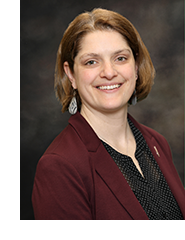
Her research is on the politics of knowledge, international academic relations and higher education policy. Her doctoral research, fully funded by a Vanier Canada Graduate Scholarship and a Leverhulme Trust Study Abroad Studentship, investigates how higher education changes in response to major social and political transformation. Her thesis uses the empirical case of the fall of the Soviet Union, comparing responses to this major change in three Central Asian countries.
Prior to starting her PhD, Emma enjoyed a progressively senior career as an innovative higher education professional in the UK and internationally. She is co-author of the book ‘Managing your career in higher education administration’ (Palgrave Macmillan, 2014). She tweets @EmmaSabzalieva and blogs on education, society and politics in Central Asia at http://emmasabzalieva.com
In this SRHE funded study, Emma will examine how certain types of knowledge have been recognized and thus how merit has been determined and rewarded over time. This will be examined by using the University of London (UoL) archives on scholarships from 1903 to 1993. This project will be the first to use the UoL archives (and amongst the first longitudinal investigations using a UK case study) to track shifts in the recognition of knowledge during a seminal period in the institutionalization of scholarships and in higher education in the UK.
Bodies and buildings: How the chronically ill or disabled experience buildings in academia
Nicole Brown is a Lecturer in Education and Academic Head of Learning and Teaching at UCL Institute of Education, and a doctoral researcher at the University of Kent. She holds the Magistra Philosophiae, Master of Teaching, Diploma in Translation, Postgraduate Certificate in Higher Education and is a Senior Fellow of the Higher Education Academy. Nicole is a qualified teacher in Austria and the UK and worked as a secondary teacher of modern foreign languages before moving into higher education.
Her research interests relate to identity and body work, physical and material representations and metaphors, the generation of knowledge, and advancing learning and teaching within higher education.
The SRHE funded project “Bodies and buildings: how the chronically ill or disabled experience buildings in academia” builds on findings from Nicole’s PhD, which focusses on how individuals with disabilities and/or chronic illnesses manage their “deviant” bodies within the physical space of university buildings. The SRHE funding enables Nicole to explore how chronically ill and/or disabled staff in academia interact with the buildings they frequent and what impact the physical environment has on their everyday experience in a two-stage approach combining rhythmanalysis with walking interviews.
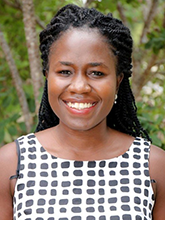
Grace Ese-osa Idahosa is a post-doctoral fellow at the Centre for Social Change, University of Johannesburg. She holds a PhD and an MA in Political Studies from the Department of Political and International Studies, Rhodes University. Her doctoral research was a hermeneutic phenomenological study which dealt with the subject of agency in the context of South African higher education transformation.
Grace’s current research, draws on the premise that if universities are to contribute to societal development, they will first have to transform themselves. She employs a structure, agency and transformation framework to understand how and under what conditions, individuals have the agency to effect transformation within their institutions. Furthermore, her research interrogates how social factors like gender, race, class, sexuality and ethnicity, intersects to enable/limit agency within specific context and is explored in her new book titled ‘Agency and Transformation in South African Higher Education: Pushing the bounds of possibility’. Her research interests include, higher education, social/organisational change, institutional culture, and body politics.
The current project, funded by the SRHE, interrogates the ways in which university middle-management, who are in key positions to engender social change within the higher education sector in Northern Ireland and South Africa, can be better empowered to enact their agency; and in what ways this is impacted by their gender and social location. By considering the structural position and power of managers to enact their agency, the study will contribute to comparative transnational findings regarding the challenges and possibilities for change within two post-conflict contexts, where the social location of such individuals intersects with the reception of their gender and other structural/social positions.
Carli Rowell is a sociologist, feminist and ethnographer passionate about social justice and social inequalities on global, national and local level. Much of her work grapples with issues pertaining to contemporary social, spatial and geopolitical (im)mobilities particularly in relation to educational (in)equalities and their intersections with class/caste, gender and ethnicity. She is currently a GCRF ESRC Post-Doctoral Research Fellow working in the 7 million pound funded GCRF Centre for Sustainable, Healthy and Learning Cities and Neighbourhoods. Carli has conducted research, taught and has been a visiting scholar in both the Southern (South Africa 2017; Tanzania 2016; India 2015; and Ghana 2013) and Northern (America 2017; Canada 2015; and China 2014) hemisphere. Prior to Glasgow Carli held positions at the University of Sussex and the University of Warwick.
Notwithstanding the expansion of doctoral study, it continues to operate as a classed pathway, a problem exacerbated by the surplus of doctoral graduates and an increasingly congested precarious global academic labour market. Although a prerequisite for academic careers, the doctorate no longer operates as a passport into the ivory tower. It is now accepted that the ‘leaky pipeline’ of academia, whereby ‘non-traditional’ bodies remain absent from professorial and higher managerial positions within UKHE threatens the diversity of scholarship and leadership. This SRHE funded study will explore working-class, ECRs lived experiences of moving through doctoral study into the academic workforce. It will make visible the successes, hurdles and ambivalences of this precarious and often invisible group of academics.
Dual Professionals in Higher Education: From Professional Practitioner to Lecturer
Julia Hope has been working in Further Education and Higher Education since 1997. Her first degree was a BSc (Hons) Applied Social Science (Policy Studies) at the University of North London in 1992 – 1995. She studied in 1995 an MA in Policy Studies in Education at the Institute of Education (University of London) a PGCE in Further Education in 1997 at the University of Greenwich, a Postgraduate Certificate in Subject Learning Coaching, Oxford Brookes University (2007). and a Post Graduate Certificate in Learning and Teaching HE, University of Chichester (2013). Julia worked for Bexley College, City and Islington College, Hastings College, and the University of Chichester. Her doctoral studies were stipend funded by the University of Chichester (awarded by the University of Southampton 2014) and set out to explore issues of equity in higher education and provided a greater understanding of the experiences of first generation students in their first semester at a case study campus.
Julia ’s current role is as a lecturer at the University of Kent’s Centre for the Study of Higher Education. Her research interests include first-generation students, dual professionals in higher education, higher education policy as well as aspects of teaching and learning in higher education.
This SRHE funded project will allow her to investigate the transition experiences of disciplinary professional practitioners in the UK who have current or recent industry experience and are making a mid-career transition to being academics. The intention is to gain a deeper understanding of dual professional as early career academics, how their beliefs about university teaching and learning are framed and evolve, and to interrogate their beliefs about being lecturers
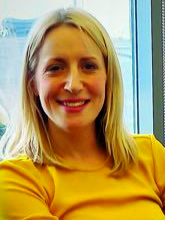
Dr Emily Danvers is a Lecturer in Education at the University of Sussex, where she also received her PhD in 2016. Her research interests are on how disadvantaged groups experience everyday moments of exclusion in educational institutions e.g. via pedagogies, policies, practices, emotions, relationships and ideas. This has included work on critical thinking, doctoral writing, widening participation and Gypsy, Roma and Travellers in higher education.
Before this, Emily worked in learning development in at Cardiff Metropolitan University, Brunel University and the University of Brighton – teaching academic and research skills to students and working with academic staff on pedagogies for developing their students’ academic skills. Emily has a BA and MA in History from Cardiff University and a PGCert in Post-Compulsory Education and Training from Cardiff Metropolitan University.
This SRHE-funded project will build upon the findings from Emily’s doctoral research into critical thinking. The project, entitled ‘Prevent/ing criticality? The pedagogical impact of Prevent in UK universities’ will investigate the pedagogical implications of the Prevent anti-terrorism duty in shaping higher education as a space of critical thinking and learning for students. This will be explored using qualitative enquiry across 3 English higher education institutions, including interviews with academic staff and student photo elicitation focus groups. In so doing, this project aims to engage in critical scholarship of higher education to inform the relevant policy landscapes shaping contexts for students and their critical learning.
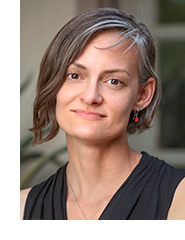
Dr Nora Timmerman is Lecturer in the Sustainable Communities Program at Northern Arizona University in the United States. Nora’s academic background is interdisciplinary with a PhD from the University of British Columbia in Educational Studies (2013) and a Bachelors of Interdisciplinary Studies in Political Science and Environmental Geography with a Minor in dance from Arizona State University. Nora is the 2017 College of Social and Behavioral Sciences Teacher of the Year. And from 2015-2018, she served as Program Chair, Chair, and Past-Chair for the Environmental Education SIG of the American Educational Research Association (AERA).
Nora’s research focuses on postsecondary faculty, scholar activism, and socio-ecological justice. For her dissertation, she collected stories and wrote “portraits” of faculty members’ personal and professional work toward “ecological integrity.” These portraits narrate how faculty negotiate the ways their work both recreates and resists problematic ecological and cultural norms and are forthcoming in her book, “Between integrity and contradiction: Educators’ stories in tangled times.”
With this SRHE prize and funding, Nora’s current research uses portraiture to chronicle four historical examples of collective, disruptive faculty activism. Most conceptions of scholar activism focus on individual actions that fit within institutional structures, but there are historical precedents that demonstrate the power and possibility of educators disrupting institutional norms collectively for large social movement issues. This study uncovers some of those precedents through oral history interviews with faculty activists and archival materials with the hope of inspiring today’s scholar activists.
Dr Katy Jordan recently completed her doctoral studies within the Institute of Educational Technology, the Open University. Her research interests focus on the intersection of Internet Studies and Higher Education research. She has published research on topics including social media use by academics, massive open online courses, and semantic web technologies for education.
As an undergraduate, Katy studied Biological Sciences at the University of Oxford. After graduating, she worked as a research assistant in the Department of Plant Sciences at Cambridge, to conduct research into teaching and learning in the department and develop e-learning resources. Following the Plant Sciences project, she worked on further Higher Education research and technology-enhanced learning projects in the Centre for Applied Research in Educational Technology. To formalise her move from Plant Sciences to Educational Research, she undertook a Postgraduate Certificate in Technology-Enabled Academic Practice at City University London, and a MPhil in Educational Research at the University of Cambridge.
The SRHE-funded project will build upon the findings from Katy’s doctoral research. The project, entitled ‘Networked publics: investigating the bounds of personal and professional selves presented by academics through social media platforms’, will provide the opportunity to explore a model of personal and professional identities expressed across different social media platforms proposed in the thesis. The study will also extend the work to explore the contrasting imagined audiences associated with different sites, and what academics perceive to be indicative of significant research impacts in different online contexts.
Exploring undergraduate students’ conceptions of ‘teaching excellence’: a phenomenographic study
Dr Mike Mimirinis is a Senior Lecturer in Higher Education Studies in the Department of Education and Social Care at Anglia Ruskin University, Cambridge. Mike gained his MSc in Computer Based Learning from the Research and Graduate School of Education at the University of Southampton, and his PhD from Middlesex University. His doctoral work looked into student approaches to learning and studying in higher education blended learning environments.
While his early studies centred on evaluations of technology-enhanced learning, he later moved on to design and implement mid and large scale academic development initiatives within and between universities in the UK and overseas. Drawing on these initiatives, his most recent study with colleagues at Uppsala University, Sweden investigates qualitative differences in doctoral students’ conceptions of university teaching.
This SRHE-funded project will allow Mike to explore variation in the way undergraduate students experience excellent teaching. The study will involve phenomenographic analysis of student interviews from a range of disciplinary backgrounds. It seeks to identify whether/how students’ ways of understanding of excellent teaching relate to current discourses derived from, and emerging in response to, the UK government’s Teaching Excellence Framework (TEF).
The spaces and places of deaf academia
Dr Dai O’Brien is a Lecturer in BSL and Deaf Studies in the School of Languages and Linguistics, York St John University. Dai’s current research interests are focused on deaf people’s spatial experiences on different scales, and exploring creative research methods.
Dai, who is deaf and uses BSL as his preferred language, completed his PhD in 2012 in which he explored the transitional experiences of young deaf people in the UK using photo-elicitation interviews. Dai also holds an MSc in Deaf Studies, an MRes in Sociology and BSc in Biological Sciences, all from the University of Bristol.
This SRHE funded project will allow Dai to explore the experiences of deaf academics working in higher education in the UK. The project aims to discover the pathways deaf people take into academia, and the networks which support them once they are involved in academic work. The project will utilise a combination of walk-through interviews and participant mapping to tap into deaf people’s visual experiences of the world.
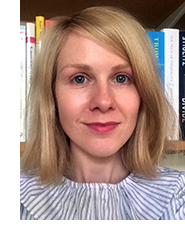
Sally is a Lecturer in the Department of Education at the University of York. Sally specialises in higher education research, and is particularly interested in access and equity issues, higher education policy, and doctoral education.
Sally completed her PhD at Imperial College London (2013), researching the motivations and aspirations of young scientists. She has previously held research appointments at the universities of York, Edinburgh, and Imperial College London.

Developing Dramatic Enquiry for intercultural learning among UK HE students
Lou joined the School of Education at the University of Leeds in January 2014 as a Lecturer in TESOL (Teaching English to Speakers of Other Languages), where she is Deputy Director of the Centre for Language Education Research. Prior to this, she taught English as a Foreign Language in Edinburgh, Glasgow and Bratislava, and English for Academic Purposes at the University of Manchester.
Lou holds a MA (Hons) in English Language and Literature from the University of Edinburgh and a MA TESOL from the University of Manchester, where she also took her MSc in Educational Research and PhD. Her thesis, Language Learning Motivation as Ideological Becoming: Dialogues with six English-language learners, explored the language learning histories and motivations of international students through the lens of Bakhtin’s dialogical theory. This research and her subsequent academic role have stimulated further interest in UK HE, in particular its linguistic and intercultural practices, its relations with non-academic communities, and creative methodologies for researching these practices and relations.

Exploring embodied academic identity
Jennifer’s route into Higher Education research has been somewhat eclectic. Her first degree was in Chemistry with Analytical Science at the University of Birmingham. She then trained as a yoga teacher and a somatic movement therapist and educator. She holds a PGCE in secondary science, a PGCHE, and an MA in Higher Education. Her doctoral studies, at the School of Education, University of Birmingham, were a phenomenological exploration of young children’s perceptions, expressions and reflections of embodiment through movement. She has worked as project manager on several large funded studies employing mixed methods of research, including the collaborative and interdisciplinary project, Imagining Autism.
Jennifer’s current role is as a lecturer in the University of Kent’s Centre for the Study of Higher Education. Her research interests include embodiment, reflective practice, reflexivity and phenomenological research methods and how these relate to academic practice and academic identity as well as aspects of teaching and learning in higher education. She is currently working on a piece of research following on from Imaging Autism, exploring the process of the research, its collaborative and interdisciplinary nature as well as the boundaries between research, performance, education and therapy.
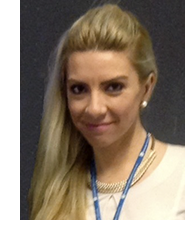
Drawing on a phenomenological approach, her PhD thesis explored the emotionality of academics in the context of the Cypriot academia. Prior to her current post, she was a lecturer of public and human relations in Cyprus from 2006 to 2008.
Marilena holds a degree in communications and mass media from the University of Athens, a MA in Public Relations and a Masters of Research from the Manchester Metropolitan University. Whilst working, Marilena is now completing a third MA in Academic Practice. She is a Chartered member of the CIPD and a Fellow of the Higher Education Academy.
Her research interests cover the areas of discrete emotions, organisational phenomenology and narratives. Her management role as a Year tutor in her University has also generated a research interest in the role of social support to the undergraduate student experience in higher education.
The SRHE funded project has enabled Marilena to explore the phenomenon of being an international academic in the UK, through the lens of their emotions. The project specifically aims to uncover the meaning of working across cultural-educational settings and examine the lived emotional experiences of international academics during their transition, teaching and social
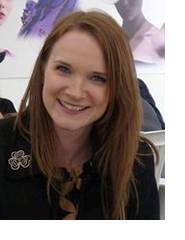
“Examining the Examiner: Investigating the assessment literacy of external examiners”
Dr Emma Medland joined the Department of Higher Education at the University of Surrey in September 2013 as a Lecturer in Higher Education. She has responsibility for the Continuing Professional Development provision offered by the Department and teaches on the Graduate Certificate in Teaching and Learning, as well as leading on various institution-wide and bespoke sessions. Prior to her role at the University of Surrey, Emma was a lecturer with the King’s Learning Institute, King’s College London from 2007, where she was the Programme Director of the Postgraduate Certificate in Academic Practice. During her time at KLI, Emma was also the academic lead on an institution wide initiative involving the review and enhancement of assessment and feedback practices (further details of this initiative may be located here: http://www.kcl.ac.uk/study/learningteaching/kli/assess).
Emma holds a first degree in Education Studies and Psychology from Lancaster University and a Masters in Research Methods in Psychology from the University of Surrey. She was awarded her PhD by the University of Surrey in 2009; her thesis title was Self-Theories of Emotional Intelligence in Higher Education: Assessment feedback and non-continuation. Her PhD research informed Emma’s interest in assessment and feedback in Higher Education, which has increasingly defined her role.

Ye joined Bath Spa University as a lecturer in International Education in 2013. Prior to her post at Bath Spa, she was a lecturer of Contemporary Chinese Studies and Director of the BA programme in Chinese Studies at the University College Cork, Ireland from 2012 to 2013.
Ye was awarded a PhD in Comparative Sociology in 2011 at the Institute of Education, University of London, supported by a Nicholas Hans Scholarship and the Overseas Research Student (ORS) scholarship. Her thesis investigated the socio-?economic patterns of access to educational opportunities and the impact of education policy on the life chances of different social groups during China’s transition to a market economy.
Over the past ten years Ye has conducted survey studies, extensive interviews and in-?depth observations in East China, covering education topics relating, for instance, to higher education selection and gender participation in education. Her research has also covered other social policy issues relating to population control (the ‘One-?Child’ policy), residence and rural-?urban mobility (the Hukou), the New Rural Healthcare reform and geographical inequality. .
Ye has published in highly ranked international journals such as British Journal of Sociology of Education. She is also contracted by Springer to publish a monograph entitled: “Education, Meritocracy and Social Harmony in Contemporary China”.
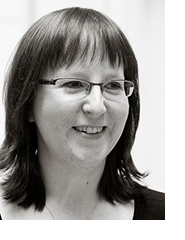
“Global gatherings and digital divides: internationalisation and the digital in higher education”
Phil is currently completing her PhD with the School of Education at the University of Edinburgh. She was awarded a Principal’s Career Development Scholarship by the University to undertake her PhD research, which takes a narrative ethnographic approach to considering organisational change in relation to the expansion of online distance education in the higher education sector. Her research interests are interdisciplinary, based in the area of digital and higher education, but drawing on organisational theory, cultural geography, social theories of time, and temporal design in education.
Phil has an MA in English and Scottish literature from the University of Edinburgh and a Diploma in Computing from the Open University. She worked in university administration for twelve years, latterly as manager of the Scottish Digital Library Consortium (SDLC). Whilst working, Phil completing an MSc in E-Learning, also with the University of Edinburgh, which led to her current PhD research. She is a member of the DiCE (digital cultures and education) research group at Edinburgh, and is also tutor on the MSc in Digital Education.
The SRHE funded project has enabled Phil to pursue a critical exploration of the relationship between internationalisation and the digital in higher education, considering how higher education institutions are made international (after Lin and Law 2013), both physically and digitally. The project aims to open up new ways of thinking about internationalisation and the digital for a range of academic and non-academic university practitioners.
www.dice.education.ed.ac.uk http://online.education.ed.ac.uk/
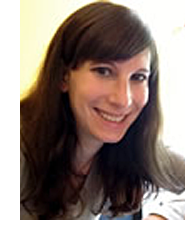
Jude joined the Department of Culture, Communication and Media as a postdoctoral researcher in 2011 after a decade’s experience as a consultant, research associate and policy analyst for international organisations (including UNESCO and the OECD) in France, Tanzania, South Africa, Vietnam, Thailand and Mexico and following a post as a research associate with the Open University’s Institute of Educational Technology.
Her PhD explored the politics of representation in academic and community-based research in/on/with the same migrant community in London. Since then, her postdoctoral research has focused on the performativity of method and the representational potential of different types of research texts. She is particularly interested in the influence of digital resources on the research process. At the Open University, she worked on a project on ‘digital scholarship’ while at the Institute of Education she has recently concluded a longitudinal study on the digital literacy practices of postgraduate students based on multimodal journaling. Jude also teaches research design, visual methods and social theory at postgraduate and doctoral level.
This project will apply Jude’s previous work to the area of academic identity, providing new insights into the academic practices of ECRs from a post-humanist perspective. As part of the study she will be keeping a reflexive blog.
Dr Anne-Sofie Nyström was awarded the 2013 Prize for her proposal entitled:
“Facing potential failure: Men, masculinities, and self-worth protecting strategies in highly competitive learning contexts”
Anne-Sofie joined Mälardalen University, Sweden, as a lecturer in Sociology in autumn 2013. Previously she has been a lecturer at Uppsala University, Department of Sociology, following the completion of her PhD on identity-negotiation among privileged young men, upper secondary schooling and underachievement. Her research interests are, primarily, educational inequality and feminist theory, with focus on boys/men, masculinities and identity processes in peer-groups. The SRHE funded project will draw on qualitative methods to explore how male students’ self-images and self-worth are negotiated in higher education and, in particular, in an elite program and in relation to potential failure.
Anne-Sofie’s thesis was well-received in Swedish news-media and policy debates when published in 2012; among other things she was invited keynote at Include 2012-conference, a national network for widening access to higher education. Her work has also been published elsewhere, e.g. in anthologies on educational inequalities, masculinities and schooling, respectively, ethical dilemmas in social science research. Anne-Sofie has, since 2005, been engaged as a lecturer – within the academia and for practitioners – with focus on teacher training, social psychology, and questions of gender, class and educational stratification. Prior to her academic career she worked at the Swedish National Agency for Education and Student Union.
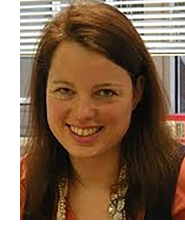
Anna joined King’s Learning Institute at King’s College London as a lecturer in Higher Education in 2011. Anna joined King’s College after a post-doctoral position at Manchester University, a DPhil award from Oxford and her undergraduate studies at the University of Kent. Anna’s research interest is in access to university and access to professions. Her work has previously been largely quantitative, meaning that she has used data sets to investigate various questions such as: how do individuals with different social background characteristics fare in the competition for scarce goods – such as highly selective education or highly selective professional entry? Anna then draws social theory to understand the empirical research findings. The SRHE funded project has enabled Anna to explore the use of qualitative methods in understanding at a deeper – and hopefully more philosophical level – questions of university access and admission.
Anna’s work has been covered in the national media including Radio 4, The Sunday Times and the Guardian and referred to in Parliament. She has served as an invited expert to the Alan Milburn Commission on Social Mobility and organised a conference on access to selective universities.

Michael joined Nottingham Trent University as a lecturer in Sociology in 2007 following the completion of his PhD which explored the identity negotiations of gay men in the Church of England clergy. Since joining NTU Michael has taught on a variety of modules, and supervised students at undergraduate and postgraduate levels. His research is broadly focussed on issues of religious and/or sexual identity.
From 2009 to 2011 Michael was co-investigator on the AHRC/ESRC funded large grant study ‘Religion, Youth and Sexuality: A Multi-faith Exploration’ which explored the lives and experiences of religious young adults from a variety of faith background, with a specific focus on issues of sexuality. The RYS study completed in February 2011.
Michael is also currently developing a research project exploring the experiences and identities of Muslim police officers. The ‘Coming out and fitting in’ project builds on Michael’s experiences, while also allowing for the developing of these with a specific focus on higher education. The project allows for reflection on contemporary experiences of higher education, which it is hoped will be of interest to higher education institutions, current students and policy makers.

Camille joined King’s Learning Institute at King’s College London as a Research Associate in 2008. She is working on KCL curriculum initiatives through The King’s Experience, including developing College-wide interdisciplinary modules. Her research focuses on international and comparative higher education, with areas of interest in curriculum and the student experience, academic motivation, PhD supervision, and developing the use of concept mapping in higher education.
Camille holds a first degree in English and Classics from Cornell University (USA) and a Masters degree in Higher Education Administration from The University of Pennsylvania (USA). She was awarded her PhD by Indiana University (USA) in 2007; her thesis title was Student Engagement in Canada and the U.S. in an Era of Globalization. Before taking up her post at the Institute, she was project associate at IU working on the National Survey of Student Engagement (NSSE).

“Attitudes towards learning among former apprentices who progress to higher education”
Harriet is a Lecturer in Education at Brunel University. She began her career as a Research Fellow in Educational Research at Canterbury Christ Church University, where she completed her doctoral study investigating children’s attitudes towards physical education during transition. She then moved to the University of Plymouth to work with a large higher education in further education partnership and develop her research into transitions.
At Brunel, Harriet teaches on the BA in Contemporary Education programme and leads modules dedicated to enhancing study skills and research methods. She also supervises Master’s and Doctoral level students. She is keen to explore curriculum design for transition into higher education and lifelong learning, especially in relation to students who take alternative routes.
Harriet has worked on a range of projects investigating the transitions of people in education, including from primary to secondary school, accreditation of prior learning, apprenticeships, progression from further to higher education and transitions into higher education and employment. This project, focusing upon the attitudes towards learning of former apprentices who progress to higher education, will build on her earlier work and provide new insights into learning among students who progress between vocational and academic programmes.


